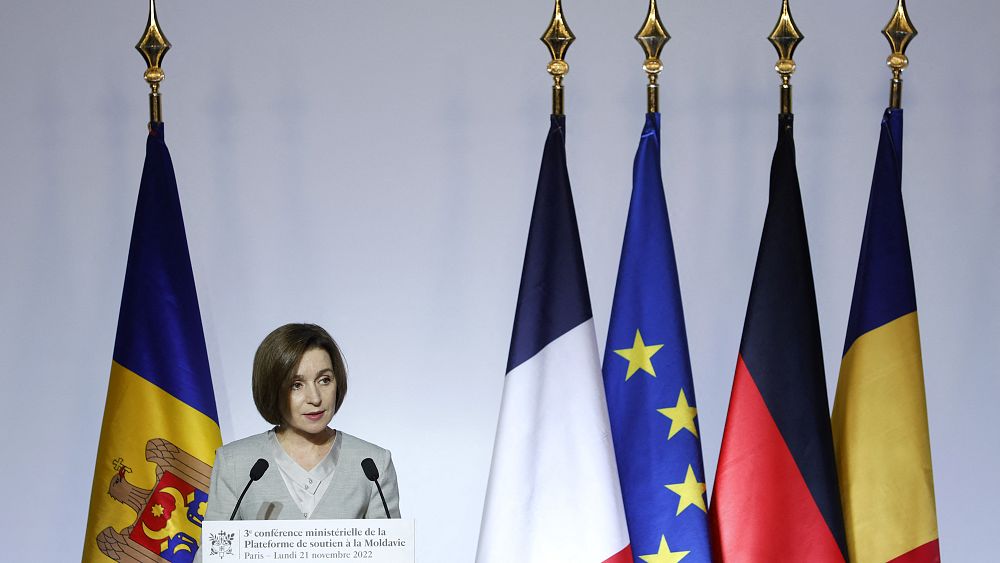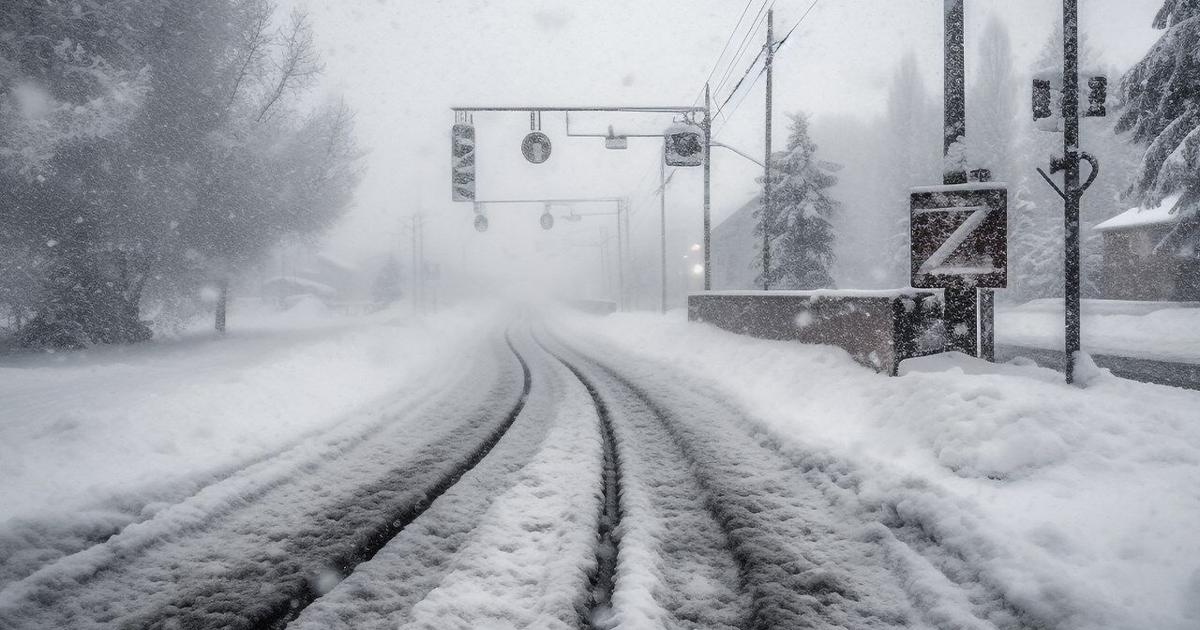Moldova closed its airspace for two hours this week. The reason, according to local media, was “security considerations” amid Russia’s invasion of Moldova’s neighbouring Ukraine and accusations voiced by President Maia Sandu that the Kremlin intended to seize power in the Republic.
Article 11 of the constitution of Moldova states: “The Republic proclaims its permanent neutrality, […] does not allow the deployment of military forces of other states on its territory.”
Following Russian military action in the south of Ukraine in 2022 near the Moldovan border and with the prospect of Russian missiles violating the Republic’s airspace, should we expect its foreign policy stance to change?
Will Moldova eventually follow in Ukraine’s footsteps and reconsider its neutral non-aligned status in favour of Euro-Atlantic integration and forming a strategic partnership with the European Union and the United States?
Moldova and NATO: A short history
Relations with NATO began in 1992 when Moldova joined the North Atlantic Cooperation Council. In 1997, this forum replaced the Euro-Atlantic Partnership Council, which brings together allies and partner countries in the Euro-Atlantic region.
Bilateral cooperation began when Moldova joined the Partnership for Peace program in 1994. In 2006, the Republic agreed to its first two-year Individual Partnership Action Plan.
At the alliance summit in Wales in September 2014, allied leaders offered increased support, advice and assistance to Moldova as part of the new Defence and Related Security Capacity Building Initiative. An individual package of measures was agreed upon in June 2015.
At the request of the Moldovan government, a NATO Civilian Liaison Office was established in Chisinau in December 2017 to promote practical cooperation and help support reforms in the country.
But according to Marie Dumoulin, a former career diplomat and today director of the Wider Europe Programme at the European Council on Foreign Relations, Moldova would have a hard time joining the alliance because of its stance on neutrality.
“Because of the neutral status enshrined in the constitution, the country cannot be a member of any military alliance,” she said.
“Therefore, even if Moldova has maintained and continues to maintain relations with NATO, it is not a member of this alliance or of the Collective Security Treaty Organization formed around Russia.
“At present, it has no desire to join any of these alliances. And the overwhelming majority of the population is not in favour of either NATO or CSTO membership.”
“At the same time, “the discussion about rapprochement with NATO and – more generally – about an intensification of security cooperation with Western countries really began in the context of the invasion of Ukraine, because it directly affects the security of Moldova.
“And Chisinau is aware of the limits of its own defence capabilities, so there is a strengthening of cooperation, especially with the European Union, and a renewed discussion of a possible deepening of cooperation with NATO,” the French political scientist notes.
A possible “Ukrainian scenario”?
How likely is it that Moldova will reconsider its attitude toward neutrality after Russia invaded Ukraine?
“Ukraine has always been in a somewhat different position,” Dumoulin said. “Despite the neutrality clause in the constitution, there has always been a strong current of those who wanted to eventually join NATO.
“That is, this issue was much more discussed in Ukraine even before the annexation of Crimea, and the annexation turned public opinion in favour of membership in the alliance. The issue was not and is not discussed so much in Moldova, it is really not the main topic in the debate on public policy.”
But Chisinau may be pushed in this direction. In the event of an escalation of the war in Ukraine, Dumoulin added, “we cannot rule out Chisinau’s desire to reaffirm its position of neutrality in order to stay as far away from this war as possible.
“At this stage, Russian attempts to advance to Mykolaiv, Odesa, and, ultimately, to the borders of Moldova, have been unsuccessful.
“So far there is no information about a new offensive. In this regard, the Moldovan authorities remain calm. On the other hand, there is a concern in Chisinau about other levers of destabilisation that Russia has.”
A number of analysts do not rule out that the “frozen conflict” in Transnistria — a Moscow-backed breakaway region of Moldova — could be a trigger for Moldova to give up its neutrality in the future.
Today, this conflict is under relative control. Not a single shot has been fired since August 1992, when the confrontation between Chisinau and the unrecognised “Transnistria Moldovan Republic” entered a peaceful phase.
“But there is a Russian peacekeeping contingent in Transnistria,” Dumoulin notes.
Russia pledged to leave the region in the late 1990s. But, it has not fulfilled its obligation so far. Many draw a parallel between the creation of the so-called Donetsk and Luhansk People’s Republics in 2014 and today’s full-scale Russian invasion of Ukraine.
Key areas of cooperation now
At the 2022 NATO Summit in Madrid, the allies agreed on an adapted support package to help Moldova implement its own long-term security and defence modernisation plans. Today, Moldova cooperates with NATO in a number of ways.
For example, the Alliance is individually supporting Chisinau’s efforts to reform and modernise the army through the Defence and Related Security Capacity Building Initiative and through the Defence Education Enhancement Programme.
Will Russia push Moldova into the arms of NATO?
President Sandu’s recent statements about Moscow’s alleged plans to overthrow the pro-European government in Chisinau have added to previous accusations that Russia has deliberately provoked an energy crisis in Moldova.
“Russia’s possibilities to destabilise Moldova are not new,” notes Dumoulin, “they are related not only to the situation in Ukraine but also to Russia’s very strong influence in the Republic, especially in the political sphere.
“There is also economic dependence, first of all, energy dependence. Moldova has made a lot of efforts to get out of this dependence, but so far it remains vulnerable.”
Moscow has been repeatedly accused of a deliberate campaign of disinformation. A number of analysts have linked Moscow with the Shor opposition party in Moldova, headed by businessman Ilan Shor.
According to Dumoulin, this political force “can be manipulated by Russia to provoke demonstrations and anti-government movements in Moldova.
“The economic situation is extremely difficult because of rising energy prices, because of the consequences of the war, in particular, the influx of a large number of refugees. Thus, a fertile ground for protest movements is created.”
Prospects for Moldovan-NATO relations
“Moldova has not officially expressed a desire to join NATO,” Marie Dumoulin said. “There is no consensus among its population on this issue either, and I think this largely explains the caution of the Moldovan authorities.
“They don’t want to start a discussion that could polarize public opinion in a situation that is already extremely difficult.”
Nevertheless, this situation could affect Moldova’s rapprochement with the European Union, which supports it in every possible way, especially with regard to Chisinau’s independence with respect to Moscow.
Much, according to Dumoulin, depends on how Moldovan public opinion about Russia will develop because there is still a significant part of the population that is sympathetic to Russia. On the other hand, the evolution of public opinion toward the European Union and NATO could also be decisive.





















Discussion about this post